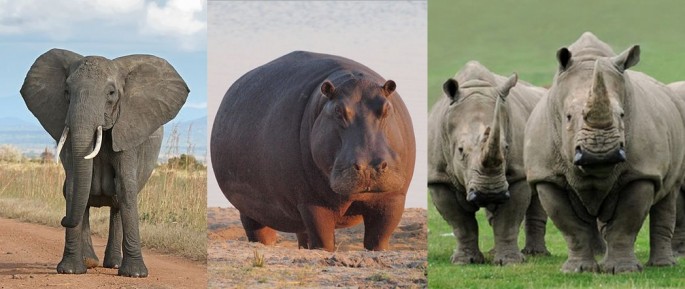New research reveals some 60 percent of large herbivores or plant eating animals face extinction from poaching and habitat loss.
The data shows populations of some of the world's largest wild herbivores such as buffalos, hippos, reindeer and gorillas are dwindling, leading to the dreaded spectacle of an "empty landscape", according to scientists.
The biggest losses among large herbivores are now occuring in Southeast Asia, India and Africa. On the other hand, Europe and North America have already lost most of their large herbivores in a previous wave of extinctions.
A new analysis of 74 herbivore species supported a previous study of large carnivores showing similar declines and the same causes. Large herbivores in the new study conducted by a team of 15 international scientists are defined as animals weighing over 100 kilograms.
"This is the first time anyone has analyzed all of these species as a whole," said Prof. William Ripple of Oregon State University who led the research.
"The process of declining animals is causing an empty landscape in the forest, savannah, grasslands and desert."
Prof. David Macdonald of Oxford University's Wildlife Conservation Research Unit noted big carnivores, "like the charismatic big cats or wolves, face horrendous problems from direct persecution, over-hunting and habitat loss, but our new study adds another nail to their coffin -- the empty larder. It's no use having habitat if there's nothing left to eat in it".
Scientists said the drastic drop in numbers is being caused by a number of factors such as herbivores being hunted for meat or body parts and competition for food with livestock, said the BBC.
Herbivores perform invaluable services that keep the balance in nature. For example, large herbivores eat seeds they carry over long distances while elephants maintain forest clearings by trampling vegetation. Some one billion people rely on wild meat from herbivores for their food and the loss of these food herbivores will lead to starvation.
Herbivores are an important link in the food chain because they eat plants to digest the carbohydrates photosynthetically produced by plants. Carnivores, in turn, consume herbivores for the same reason.



























